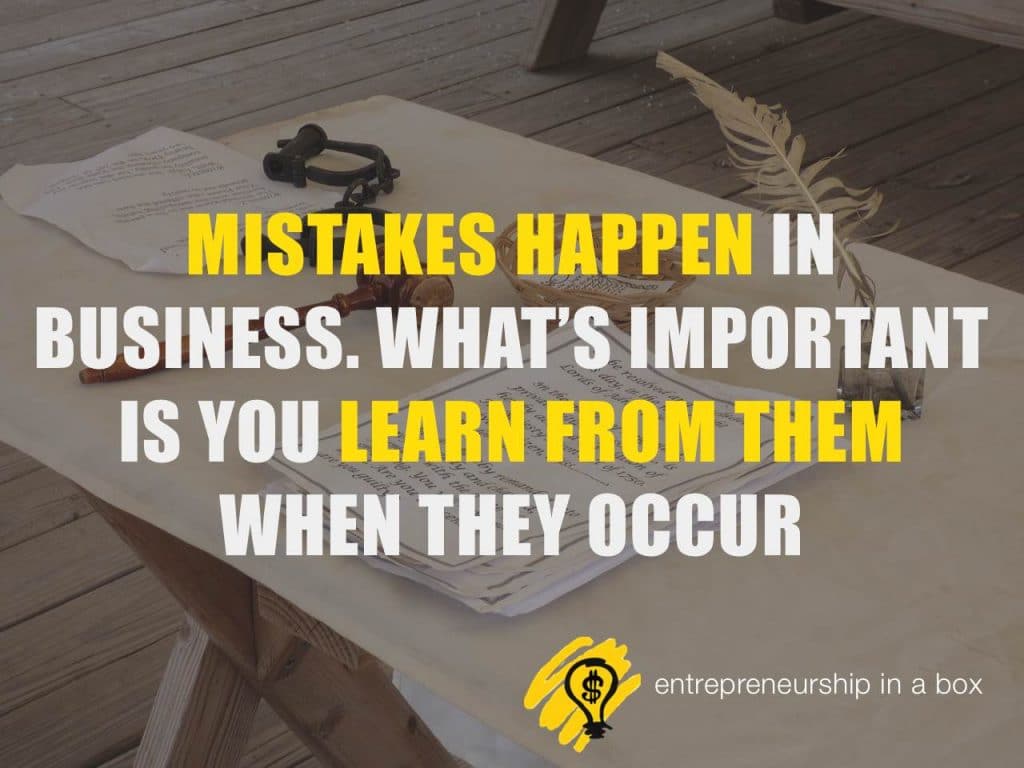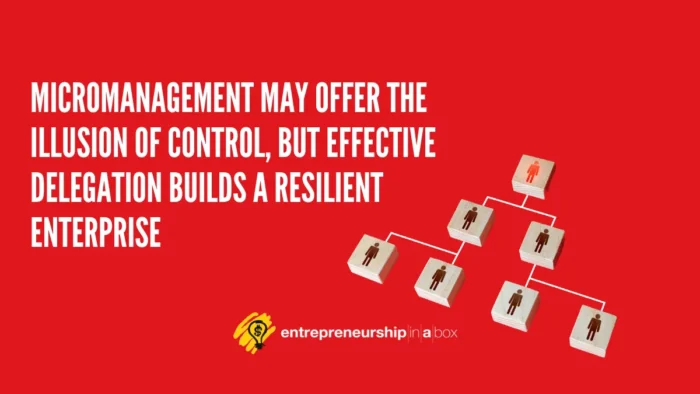Starting a business offers many opportunities for financial success. This is why many people become entrepreneurs and establish their own businesses. There is no question that a company can be a stepping stone to prosperity. It can bring what a regular job can’t promise. Many people have become wealthy through business. But, also, there will be many costly mistakes you can make.
As 2024 spreads, the entrepreneurial landscape continues to evolve. In a world where change is the only constant, mistakes can be less forgiving.
Today, we will cover 20 mistakes every entrepreneur is likely to make. Let’s get started!
Entrepreneurial Challenges
Starting your venture based on your passion or identified need is romantic and empowering. But when reality throws its heavy shadow, challenges appear larger and more problematic. The key to mastering this dynamic journey is to recognize that mistakes will happen, and their subsequent handling separates those who succeed from those who learn the hardest lessons.
Mistakes entrepreneurs make are not just setbacks; they can spend resources, demotivate teams, and potentially risk years of hard work. But, when approached with the proper perspective, each common mistake is a lesson in entrepreneurial strengths and wisdom.
The Consequences of Mistakes Entrepreneurs Make
Below, I will explore some consequences to understand why you must avoid these mistakes.
Financial Fallout
Mismanaged capital is a common mistake entrepreneurs make. Oversights in fund allocation and lack of transparency in the financial domain can crash your venture before it even launches.
Team Dissonance
Staffing errors in hiring, managing, or retaining talent contribute significantly to your business’s successes or failures.
Brand and Reputation at Risk
From marketing mistakes to customer service failures, anything that harms your brand’s integrity can be challenging to rebuild.
Missed Market Opportunities
An oversaturated market might blush with opportunities, but capitalizing on the wrong ones can be as bad as missing the mark entirely.
Failing isn’t naturally a negative thing; it’s an inherent step in your entrepreneurial journey. However, regular mistakes indicate an underlying problem in your approach, and understanding these differences is critical to your business growth.
20 Common Mistakes Entrepreneurs Make
Here, we will list and discuss the top 20 common mistakes entrepreneurs make, which ultimately serve as cautionary tales – and blueprints for what not to do.
1. Starting a Business With Little Knowledge

Launching a new business venture without fully understanding its domain can lead to blind spots and crucial oversights.
Most entrepreneurs start a new business without knowing how to run it. A wise entrepreneur starts his own successful business by finding good opportunities, taking advantage of them, and learning how to use them strategically.
Make sure you learn the different business types and what their advantages are. Also, ensure you follow all the essential business news for your industry.
2. Lack of Market Research
This is one of the biggest mistakes entrepreneurs make, and this is especially true for first-time entrepreneurs.
Starting a new business and going into unknown territories without concrete data to back your decision-making is similar to driving a car blindfolded – potentially dangerous and almost certainly unproductive.
So, you must conduct market research, and you can follow this market research guide to help you. Remember that this is not a one-time job. There will always be some market fluctuations, requiring continuous reassessment of market conditions and conducting research.
3. Marketing Your Own Business Without Appropriate Marketing Strategy

Personal passion doesn’t always lead to effective marketing. An intuitively developed marketing strategy is not what most successful entrepreneurs do. Your strategy needs factual support to ensure it resonates with your target market.
Your overall business strategy and business plan must include essential things related to marketing strategy.
When you have your marketing strategy, you can quickly develop a strong marketing plan that will make your marketing efforts planned strategically because it will give you answers to questions like these:
- What marketing channels will you use?
- What social media platforms are utilized by your target market?
- How will you use different social media platforms to reach your target market?
4. Unfamiliarity with Your Target Audience
Your new business cannot serve a market you do not know. Your business model must start with your target audience and then be developed according to the needs and requirements of this audience.
A wrong audience will result in missed needs and a product-market fit that is perceptibly misaligned.
Here is how to find your right target market and reach your target audience.
5. Ignoring Your Competition

The market is an ecosystem where products are about relativity, and ignoring competitors can make your offering seem incomplete or overpriced.
One entrepreneur I have worked as a business consultant has started his entrepreneurship journey with a clear vision: to offer a unique blend of coffee and a relaxing ambiance that would make his venture the talk of the town.
What he ignored, however, was a thorough analysis of his competition. Two blocks away, a well-established coffee shop with a loyal customer base offered similar blends and an equally inviting atmosphere. After the startup process, he realized that his company was struggling to attract customers from the already established competitor.
This example illustrates a critical entrepreneurial mistake of ignoring the competition.
So, you must conduct competitive research and follow these 13 steps to beat your competition.
6. You Try to Do Everything Yourself
I’ve seen many first-time entrepreneurs, especially young entrepreneurs, who try to do everything by themselves. But this is not possible, and because of that, it is one of the biggest mistakes.
Your entrepreneurial passion can often lead you to undertake more than can be reasonably accomplished, risking burnout and poor-quality work outcomes.
Remember, you are not alone on your entrepreneurial journey.
7. Lack of Organizational Skills
Chaos is the enemy of your productivity. As an owner, an organized working model sets the stage for building a successful business with scalable growth.
Related: Organize Yourself Because of These 8 Benefits
8. Forgetting Financial Planning

Financial planning isn’t just for your accountant’s quarterly financial projections; it is the basis for every business decision. Research indicates that 65% of entrepreneurs who fail say they made the mistake of mismanaging their finances.
Without the correct financial projections, you will not ensure financially responsible operations.
For example, every enterprise needs finances at some point, usually when a business is expanding. As a business owner, you must know how much capital you will need to start a business, run a business, and grow your company.
So, your business plan must include financial planning like forecasts, projections, and what you will do if something unexpected appears.
9. Blindness to Financial Risks
You must be prepared for “what ifs.” Here, we are not discussing pessimism related to financial projections but careful predictions that ensure your company survives and thrives in the long run.
Read more about everything you must know about financial risk.
10. Inattention to Cash Flow

Cash flow is the lifeblood of your company. Ignoring it can lead to growth hurdles and, ultimately, premature closure. A study concluded that in 2022, running out of cash was behind 44% of failures.
You probably already know that even if your company is profitable, your cash flow can still destroy your venture.
I’ve seen many profitable companies suffer because of inattention to cash flow, one of the most critical mistakes in financial management. For example, one company’s quarterly earnings were strong on paper, with substantial revenues coming in from long-term contracts. However, the payment terms of these contracts were 60 to 90 days, creating a significant gap between invoicing and cash receipt. Conversely, the company needed to meet its obligations: payroll, vendor payments, and office leases. Without sufficient cash reserves to bridge this gap, the company was in a dangerous situation – delaying vital payments or taking high-interest loans to maintain operations.
Related: 10 Reasons Being An Entrepreneur Is Better Than Employment
11. Getting Your Pricing Wrong (Overpricing and Underpricing)
The market is not always willing to accept your pricing.
Some entrepreneurs are unaware of the current market price of the products they will sell. As a result, their pricing may become much higher than products sold by competing companies. The supply and demand is something that dictates pricing, not an entrepreneur’s whim.
On the other side, I have seen many entrepreneurs underprice their products and services and, in such a way, leave the money on the table. So, it is essential to use the right pricing strategy based on the value you offer and research the pricing strategies of your direct competitors.
12. The Business Partners Paradox
Picking the right business partner is as vital as finding your product-market fit. The wrong partner can add complexity where there should be cooperation.
Although some businesses begin with partnerships and grow, these are rare cases. Most of the time, partnerships at the early stage of the business end up in disagreement and split. It’s better if you are the sole decision-maker in your venture if you don’t have the right partners or legal platform for eliminating each possible founder’s dilemma.

13. Hiring People for Unnecessary Jobs
Hiring employees is indispensable to every organization. However, this should be done in the right way. If you want to hire people, ensure the jobs are essential tasks you can no longer perform yourself.
Remember that a lean team is agile; an excessive one is unmanageable. Overhiring can lead to slow growth and a large amount of overhead.
14. Failing to Delegate Effectively
Mis-delegation can be as ineffective as attempting everything yourself. Learn to delegate tasks in a way that empowers your team.
As a business consultant, I recall the story of a startup led by an enthusiastic owner. Her groundbreaking productivity app was gaining traction, and her small team was full of creativity. Yet, the growth was limited. The owner wanted to be involved in every possible decision.
The startup’s difficulty became evident when a critical update was delayed because they awaited her approval. This delay brings customer dissatisfaction. So, her inability to delegate effectively impacted her team’s productivity and decreased their motivation.
I worked closely with her to employ a structured delegation strategy. It involved identifying key areas she could delegate to her skilled team members and establishing processes to facilitate independent decision-making.
Remember, micromanagement may offer the illusion of control, but effective delegation builds a resilient enterprise. So, you must ensure that your company culture will be based on trust between you and your team members. This workplace culture is essential for your success.

15. Buying Another Business
For big companies and mergers, acquisitions may bring many advantages. However, for small businesses, buying another business poses risks. Instead of purchasing another existing firm, expand your own and improve your from within.
16. Brand Consistency Over Time Mistake
Constantly rebranding can erode consumer confidence and make your firm seem unstable. A brand needs time to resonate.
Remember that it takes time to establish a brand. Changing the name of your business products or brand identity too soon may confuse your existing loyal customers.
You must build a strong brand strategy to succeed and stay consistent.
✋ Warning
Use the helpful tips on creating products that solve real customers’ problems.
17. Entrusting Your Business to a Manager
Another mistake by some entrepreneurs is hiring a talented manager to oversee their operations. Never forget that your enterprise is still yours and not your operation manager. There may be unacceptable strategies this person employs, and you have to be there to correct their actions.
When I work as a business coach, I always try to encourage entrepreneurs to start developing their management skills from the first day. Creativity is essential, but knowing how to manage your team members is also very important.
18. Renting Expensive Space as a Mistake
Ambitions can sometimes outgrow the space you occupy, but rushing into a more significant rental can strain your growth capability significantly.
Your firm may need to rent an office where you can sell your products or services. Renting expensive space is not advisable if your firm is still small. Always start with something practical and expand from there.
Before several months I have worked as a business coach with an owner that offer services to customers. They have rented a large space for representation purposes. But, after we analyzed their products and operations, especially how they communicate and work with their customers, we concluded that more than 80% of their interactions with customers come with digital communication tools. On the other side, their expenses for rented space covered around 50% of their total expenses. So, the conclusions and next action steps were obvious.
19. Ignoring Feedback and Adaptation
Ignoring valuable customer feedback and failing to stay attuned to changing market trends can be costly mistakes. So, it’s crucial to remain ready to pivot and adjust your direction as needed to succeed. A successful startup is not unthinkingly following an already prepared business plan. However, their business plan is a dynamic document changing based on changes in external impact factors.
I have witnessed firsthand how dangerous it can be for a firm to ignore client feedback. Initially, my client enjoyed a growth in popularity due to their unique product range based on their initial business idea.
However, customers began asking for more health-conscious options, which the owner dismissed as a trend. He stuck strictly to their original offerings, believing his niche was untouchable. Unfortunately, the lack of adaptation led to a gradual decline in sales as competitors emerged, offering the desired healthier alternatives.
Remember that even the most loyal customer base can decrease if you fail to track their growing needs and preferences.
20. You Are Not Securing Your Intellectual Property
In a digital age, the value of your ideas is currency. Neglecting to protect them can lead to being blindsided by competitors or malicious parties.
Many entrepreneurs make this mistake, especially first-time entrepreneurs. Several years ago, I was on a commission in a business competition for startup grants. The business idea was great because it was based on innovation in procedure genetics research, but the target market was wrong. After the end of the event, I asked him to change the market and patent his innovation. This young first-time entrepreneur responded that he didn’t want to secure his intellectual property because he feared someone would steal his idea. After some time, I saw a similar firm start, even though nobody had stolen his idea. So, it was an apparent mistake.
How You Can Avoid These Mistakes in 2024 and Build a Successful Business
Here’s how to chart a safer system and avoid these common mistakes.
- Continuous learning. Never consider your knowledge complete or your learning curve topped out. Always be a student of your trade, open to growth and evolution.
- Conduct comprehensive market research. This research should be your reliable companion in every business plan. It’s a map and compass, crucial for running your firm in the right direction.
- Prioritize your financial strategy and budgeting. You must align your financial strategy with your business vision; as one evolves, so must the other. Stay flexible but always grounded in a fiscal sense.
- Develop strong organizational and delegation skills. Effective organization and delegation encourage trust and strengthen teamwork in such a way that lays the foundation for your enterprise to grow beyond you as a founder.
- The feedback and improvements. Feedback should always be welcomed, streamlined, and acted upon promptly. In this business landscape with a customer-centric market, adaptability is crucial.
Conclusion
Mistakes happen, and what’s important is that you learn from them when they occur. However, you don’t have to experience them to learn. You can learn from commonly known mistakes that you can avoid. Remember that your firm is at stake when you make a wrong decision.
Learn, pivot, and lead.



